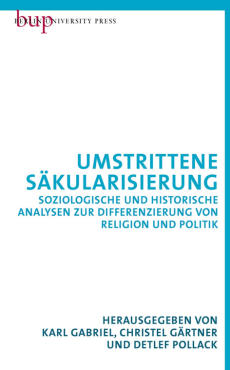Contested Secularization

The secularization theory assumes that modernization in its various facets leads to a loss of importance of religion and church in present times. This thesis, a core concept of the classical sociological theory, has become a matter of controversial discussion in the last 15 years. While some sociologists, political scientists and historians still maintain these fundamental assumptions, voices are getting louder from those who point to the increased visibility in the mass media and the rise in political relevance of religions in order to question the correlation between modernization and secularization implied by secularization theory.
Above all, they criticize the deterministic tendencies of secularization theory. Furthermore, there is criticism of some of its basic theoretical premises such as, for example, the theory of functional differentiation: Does the differentiation of religion and politics, of religion and science, of religion and law, really necessarily coincide with a decrease of the social importance of religion in modern societies?
This edited volume subjects fundamental statements of the secularization theory to a historical review. Sociologists and historians collaborate in working out to what extent the image of an increasing differentiation of religion and politics applied to the last centuries needs to be revised.
Literature: Gabriel, Karl, Christel Gärtner, and Detlef Pollack (eds.), Umstrittene Säkularisierung. Soziologische und historische Analysen zur Differenzierung von Religion und Politik. Berlin: Berlin University Press, 2nd edition 2014

